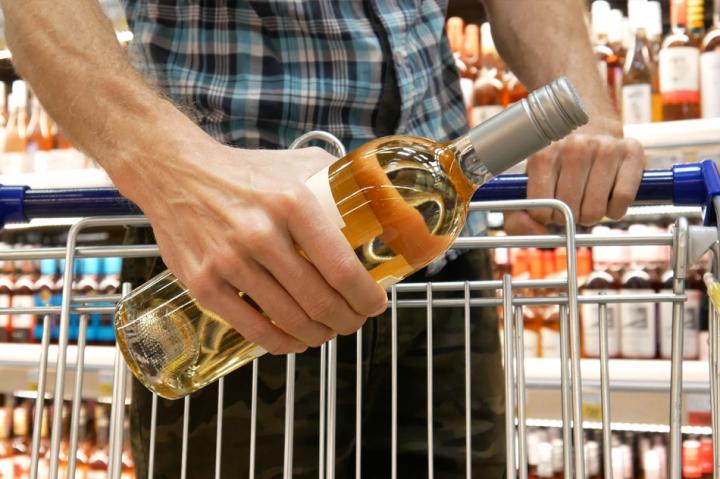Kylie ‘spinning around’ over Aldi wine dupe

They say imitation is the sincerest form of flattery, and nobody takes this adage more seriously than supermarket giant Aldi. From M&S to Heinz and Cadbury to Thatchers, there have been a number of complaints about Aldi’s marketing strategy.
Now, they’ve decided to take on the princess of pop herself, Kylie Minogue, with a ‘homage’ to her successful rose wine and she isn’t happy, with her team threatening legal action.
Kylie isn’t the first person to challenge the supermarket (who could forget poor Colin), but will the Australian pop star/vintner finally be the one to take Aldi down (under)?
Better the devil you know
Her team argue that Aldi’s new Rosalie Côtes de Provence Rosé looks strikingly similar to Kylie’s, particularly the font used for the name ‘Rosalie’.
We couldn’t possibly comment.
Aldi is often accused of getting as close to name brands as possible so that the familiar packaging cues (such as colours, fonts and shape) tell consumers exactly what to expect. This means shoppers can buy approximations (some apparently more successful than others) of their favourite products for a fraction of the price.
But if that’s true, how do they get away with it?
There are a few routes a brand could go down to pursue legal action against Aldi, the most frequently pursued being ‘passing off’.
Let’s take Kylie as an example. For her to be successful, she would have to prove that i) her Rosé has goodwill or a reputation attached to it; ii) Aldi is misrepresenting its Rosé in a way that is likely to lead the public to believe that the Rosé sold by Aldi is Kylie’s Rosé; and iii) that misrepresentation is causing her damage (i.e. people are buying Aldi’s Rosé instead of hers).
But here’s the kicker… everyone knows what Aldi is doing. Everyone knows when they walk into Aldi that they will see a range of Aldi versions of name brands rather than the name brands themselves. It is precisely that knowledge that makes a claim in passing off difficult; it doesn’t work if no one is being misled into thinking Aldi’s products and the name-brand products are the same.
So, while it is understandable that Kylie and other big brands that put so much work into their product development are upset, the law still gives Aldi and other supermarkets a fairly long leash in the development of ‘dupes’. Even where Aldi openly admits (and charmingly mocks) that they used another brand’s packaging as a benchmark in their designs, they know, for the most part, where the legal line is.
They don’t always get it right (Charlotte Tilbury’s team found a clever way of stopping Aldi from copying one of their makeup palettes), but even when they lose, their world-class social media team often ensures they end up with positive media coverage (#FreeCuthbert).
What can we learn?
In order for protection to be maintained, an owner of a trademark must be seen to be diligently taking action against those who infringe on their rights. Failure to do so can weaken your rights in the brand.
If you want to understand more about how you can prevent others from exploiting your intellectual property, our IP Health Check is designed to help you uncover your IP’s potential and vulnerabilities, giving you not only peace of mind but also information and advice you can use to build your IP strategy for future growth. Fill in our short form to get started.
For further information on protecting your intellectual property assets, booking a free IP health check consultation or if you are unsure whether your intellectual property rights are adequately protected, contact Tom Justice using [email protected] or 0191 211 7913.
